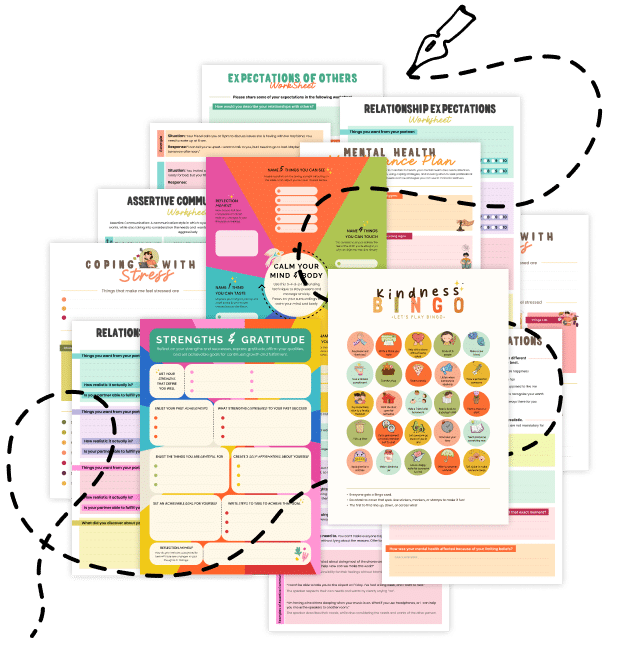20 Things About Event Boundary Processing
Explore Event Boundary Processing and how your brain divides continuous experiences into segments called “events.” Discover why recognizing these mental boundaries helps you remember, learn, and navigate the world more effectively.
1. What Is Event Boundary Processing?
Event Boundary Processing refers to the brain’s ability to chunk ongoing experiences into discrete episodes or “events.” It’s like your internal video editor, inserting mental cuts that mark the end of one scene and the start of another.
2. How Event Boundary Processing Shapes Memory
When an event boundary is perceived—like moving from one room to another or switching tasks—your brain creates a natural pause in encoding. This segmentation helps you file and retrieve memories more systematically.
3. Tied to Context Shifts
Subtle changes in environment, goals, or actions can act as boundaries (e.g., stepping outside your car, starting a phone call). The more noticeable the transition, the clearer the mental dividing line.
4. Brain Regions Involved
Areas like the hippocampus, prefrontal cortex, and parietal cortex coordinate to detect changes and form these event boundaries. They flag when a new “chapter” in your experience begins, directing how the episode is stored.
5. Event Boundary Processing Influence on “Doorway Effect”
Have you ever walked into a room and forgotten why you came there? Researchers link this “doorway effect” to event boundary processing: crossing a doorway can signal your brain to close one mental file and open another.
6. A Functional Shortcut
Segmenting experiences allows you to recall details more quickly, focusing on essential changes rather than an overwhelming continuous flow. It’s an efficient way to process a fast-moving world.
7. Event Boundary Processing Impact on Learning
Teachers and trainers can enhance retention by marking event boundaries—using chapter divisions, topic summaries, or changes in tone—to help students store content in distinct mental folders.
8. Event Boundary Processing Role in Storytelling
Good storytellers leverage event boundaries (like scene cuts in a movie) to guide audiences smoothly through a narrative. Each boundary signals a new development or twist, aiding comprehension and recall.
9. Task Switching and Boundaries
When you rapidly switch tasks—like checking email mid-project—your brain inserts more event boundaries. This can disrupt a cohesive flow of thought, sometimes hampering productivity if done excessively.
10. Emotional Intensity Matters
Strong emotions can amplify event boundary formation. Memorable highs or lows act as vivid bookmarks, making these episodes stand out more sharply in your memory.
11. Everyday Applications
- Planning: Break down big tasks into segments for clearer progress checks.
- Meetings: Pause discussions at natural boundaries to recap and confirm points.
- Self-Reflection: Journaling “chapters” of your day helps you observe transitions and patterns.
12. Links to Cognitive Aging
As we age, event boundary detection can weaken, affecting how seamlessly we update and recall new experiences. Staying mentally active may help maintain sharp boundary processing.
13. Virtual Environments and Boundaries
Games or VR experiences often incorporate noticeable transitions—like level endings or scene changes. These design choices mirror the brain’s preference for chunking experiences into digestible segments.
14. Helping Memory Retrieval
When you recall an event, your brain replays cues from its boundary. If you’re stuck remembering a detail, thinking about what changed (time, place, or activity) can jog your memory faster.
15. Culture and Event Perception
Different cultural practices mark events in unique ways—like ceremonies, holidays, or work breaks—reinforcing boundaries that structure community life and shared memory.
16. Mindfulness of Boundaries
Paying attention to your own transitions—like finishing a meal or ending a conversation—can enhance self-awareness. A brief mental pause helps you carry forward relevant info and emotions into the next step.
17. Overlapping Events
Sometimes boundaries blur if multiple changes happen at once (e.g., moving house while starting a new job). The brain might struggle, leading to stress or confusion if transitions aren’t carefully managed.
18. Adaptive Significance
In evolutionary terms, quickly identifying and adapting to new “events” (like encountering a predator, finding shelter) could have been a survival advantage, ingrained in our cognitive wiring.
19. Practice “Boundary Creation”
You can actively insert boundaries—like a “workday wrap-up” ritual or mini reflection breaks—so your brain knows when one phase ends and another begins. This can sharpen focus and reduce mental clutter.
20. Related Topics to Explore
- Context-Dependent Memory: See how environment plays a role in recall at event boundaries.
- Method of Loci Variants: Use spatial “boundaries” to anchor and retrieve information.
- Memory Reconsolidation: Learn how revisiting memories can reshape event details.
- Chunk Your Work: Group related tasks to align with your brain’s preference for segmented experiences.
Quick Tips to Harness Event Boundary Processing
- Pause and Review: At natural stopping points, recap the key moments before moving on.
- Use Environmental Cues: Change your setting for different tasks—like studying in one spot, relaxing in another.
- Visualize Chapters: Imagine each phase of your day as a scene in a story to keep transitions clear in mind.
- Create Rituals: Simple acts—like standing and stretching between tasks—signal event boundaries.
- Reflect on Key Shifts: Before bed, mentally revisit each “chapter” of your day for better retention and insight.
Event Boundary Processing shapes how we remember life’s unfolding moments. By recognizing and intentionally using these mental transitions, you can improve learning, streamline task management, and deepen your self-awareness. Share this post with friends or coworkers—help them discover how noticing and crafting boundaries can transform everyday experiences into clearer, more memorable events!


